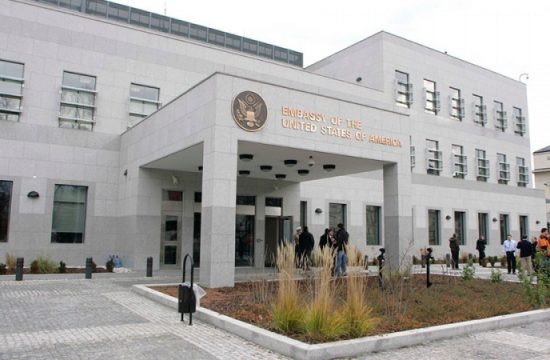
The Dutch Clingendael Institute and Think for Europe Network (TEN) published an article on Wednesday asking whether the European Union helped the appearance of the so-called 'stabilitocracis' in the Western Balkans despite its efforts to embrace the six regional countries.
“Through its enlargement policy, the EU seeks to foster democratisation in Albania, Bosnia and Herzegovina, Kosovo, Montenegro, North Macedonia and Serbia, also called Western Balkans six (WB6). Despite years of efforts, the EU’s policies have not brought about the expected change,” the report by the two organisations said in an article titled ‘The EU as a Promoter of ‘Stabilitocracy’ in the Western Balkans?’
They added that “the enlargement process has lost both efficacy and political momentum. Instead of experiencing decisive democratic reform, the WB6 have slowly developed into ‘stabilitocracies’: countries with obvious democratic shortcomings that at the same time claim to work towards democratic reform and offer stability.”
The report identified eight flaws in the EU’s strategies, policies, and implementation believed to contribute to stabilitocracy formation.
It added that “in each of the WB6 countries, concrete cases exemplify how EU influence has unintentionally contributed to stabilitocracy formation and what factors have determined whether the EU approach has been constructive or not. The technical approach is the most prevalent flaw in the case studies. Examples range from the EU's inability to harmonise the interests of different ethnic groups in Bosnia and Herzegovina, structural weaknesses in the European Union Rule of Law Mission in Kosovo (EULEX), the failure of technical safeguards to counter blurred boundaries between branches of power in Montenegro, an overly technical focus in progress reports on democracy and the rule of law reforms in North-Macedonia, and an overly technical fixation in the application of the revised methodology in Serbia.”
“To avoid the traps of further stabilitocracy entrenchment, we put forward recommendations and critical reflections on how to improve the EU's role in the region. Recommendations include focusing more on genuine feedback to WB6 governments, better reporting on the state of progress, enhancing communication with citizens, and specifying benchmarks while accompanying them with more tangible timelines,” the report said.
It added that fixing the technical process was necessary but insufficient for the EU accession process and its democratisation agenda for the Western Balkans.
“Therefore, the EU and its member states need to seriously consider proposals for a further overhaul of the enlargement process to allow for a staged accession trajectory for the WB6. At the same time, the EU could speed up engagement with the WB6 beyond the enlargement framework to not lose grip in a region subject to increasing great-power competition. Lastly, it is recommended that the Netherlands takes further action to substantiate its ambitions as a critical but engaged member state,” the Institute and TEN said.




Kakvo je tvoje mišljenje o ovome?
Budi prvi koji će ostaviti komentar!